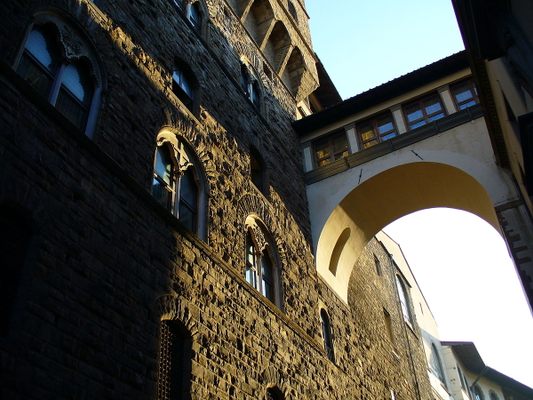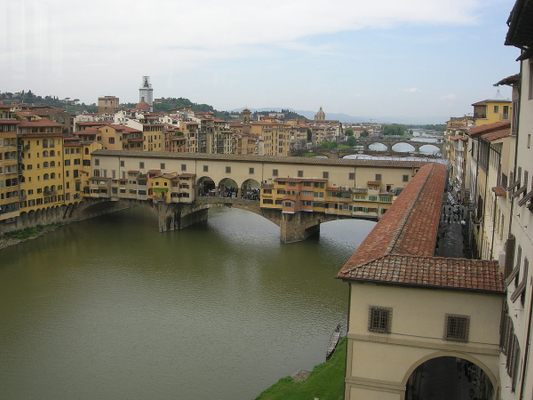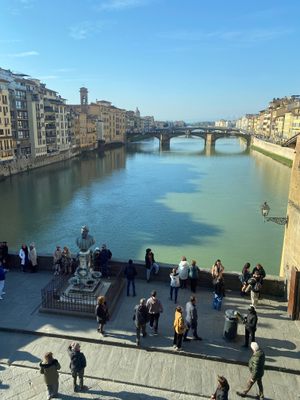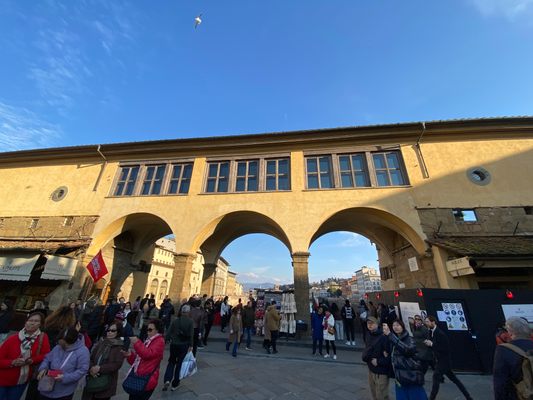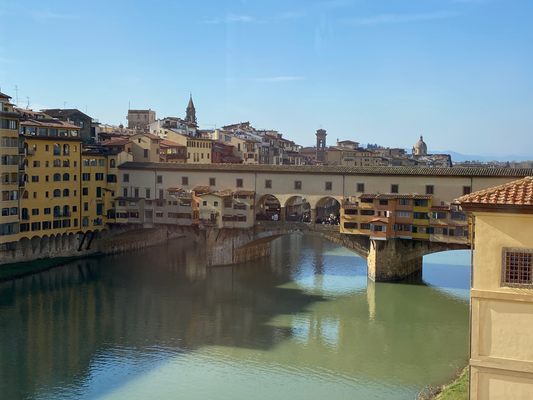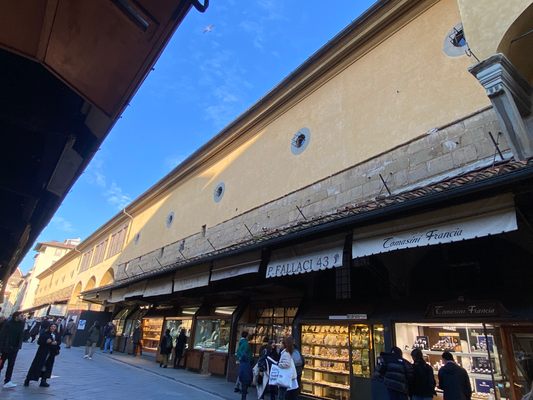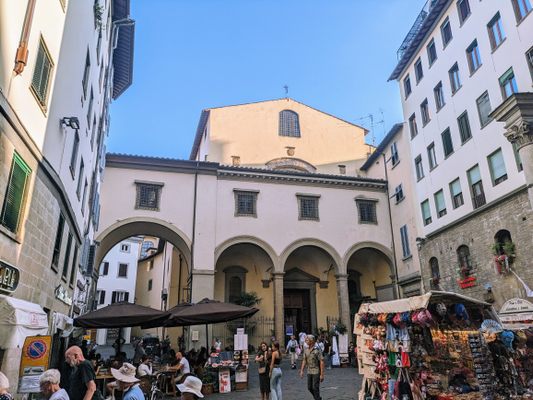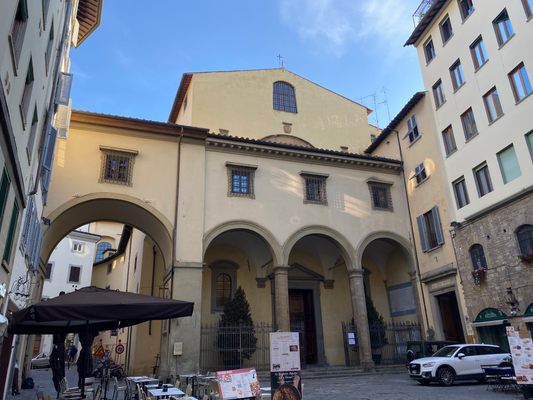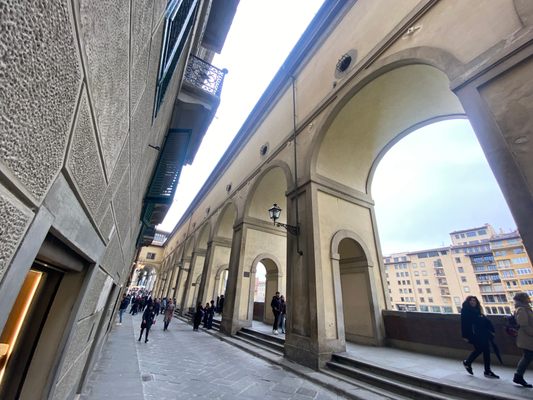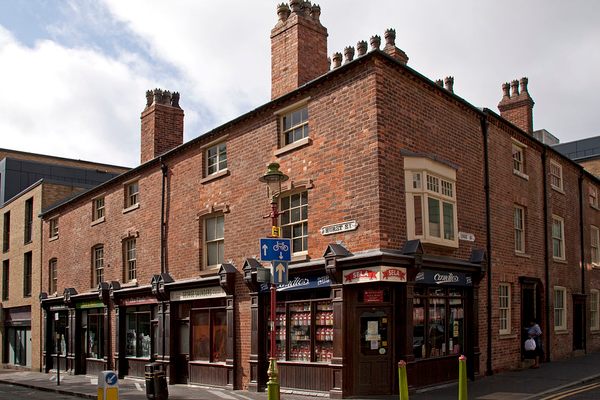About
The Vasari Corridor is a private overground passageway that links the Palazzo Vecchio to the Uffizi Gallery and then crosses above the Ponte Vecchio to the Palazzo Pitti.
Construction of the artful skyway was ordered by Grand Duke Cosimo I de' Medici in 1564 and designed by Giorgio Vasari. The reason for the corridor was twofold: publicly the passageway was commissioned to celebrate the marriage of Cosimo's son, while the more utilitarian reason being that it allowed the Grand Duke the freedom to move fearlessly between his home and his offices. While the thoroughfare was completed in just five months, the construction of the corridor was not without its issues. One of the primary problems was that the Mannelli family owned a tower directly in the path of the new hallway, and they refused to alter or demolish it. Thus the passage was simply bent around it, leading to some awkward angles and turns. In the middle of the Ponte Vecchio the corridor also has a series of panoramic windows added by Benito Mussolini in the 1940s for a visit to Florence by Adolf Hitler, so that they could appreciate the view of the Arno together.
In terms of artwork, the Uffizi section of the Vasari Corridor is used to exhibit over 1,000 paintings including their famous collection of self-portraits by artists like Lippi, Velázquez, Chagall, Rubens, Rembrandt, Van Dyck, and Delacroix.
Update as of July 2023: The corridor is closed indefinitely for renovations.
Related Tags
Know Before You Go
The corridor typically starts in the Uffizi Gallery and ends in the Pitti Palace. It crosses the river Arno at the Ponte Vecchio.
Flavors of Italy: Roman Carbonara, Florentine Steak & Venetian Cocktails
Savor local cuisine across Rome, Florence & Venice.
Book NowCommunity Contributors
Added By
Published
April 28, 2014
